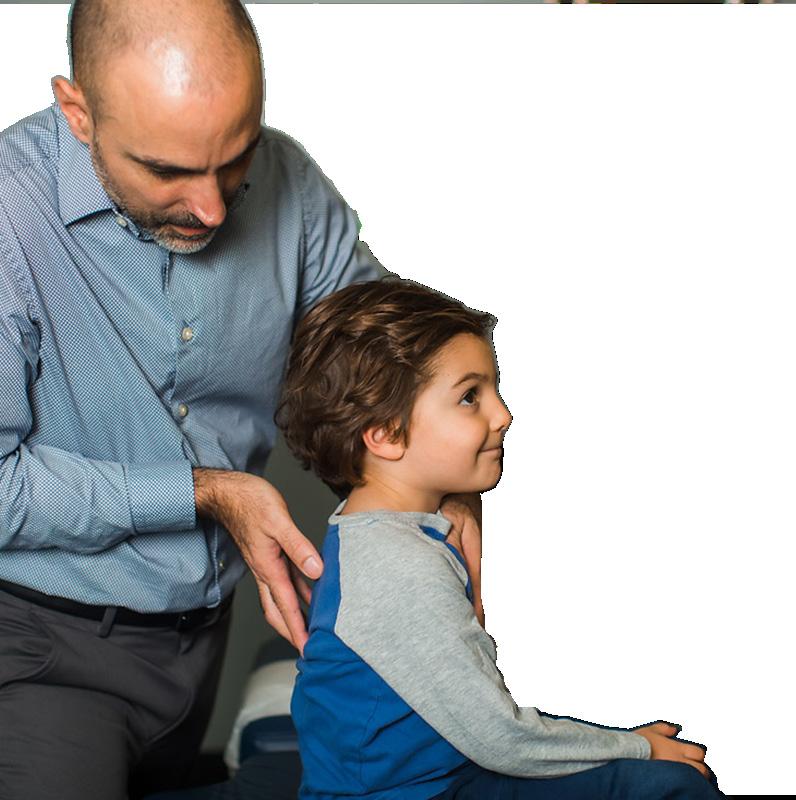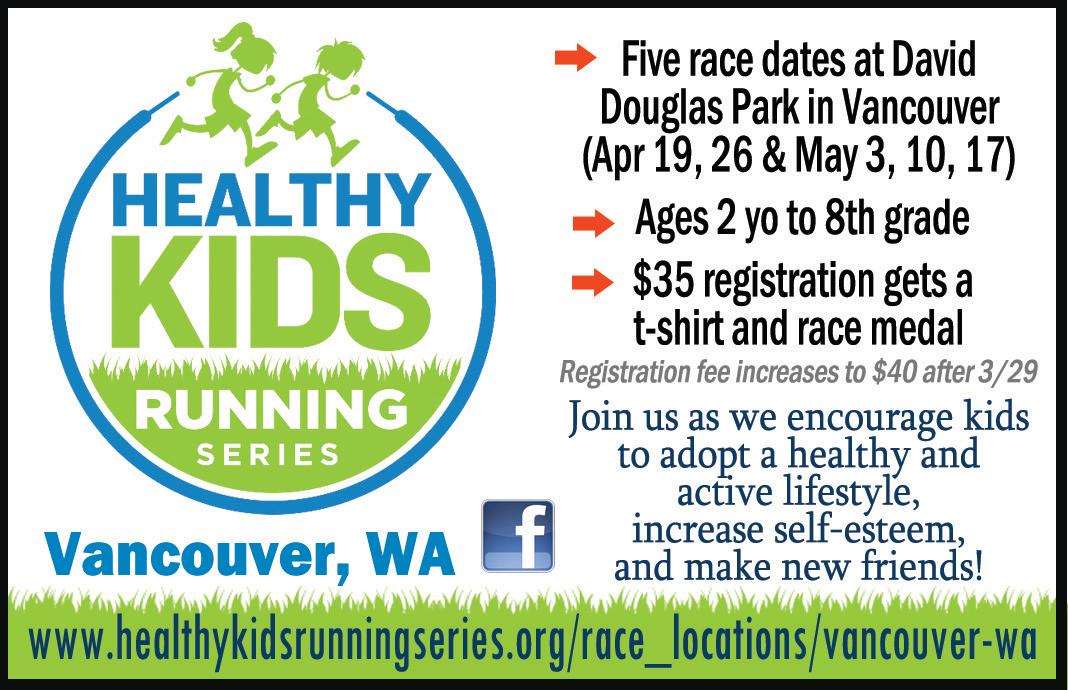
8 minute read
No Longer a Secret Identifying and confronting postpartum depression, and where to find help
No Longer a Secret: Confronting Postpartum
Mood Disorder
By Dana Greyson
I hadn’t had 4 hours sleep straight for weeks. I was just exhausted. Changing my daughter’s diaper, frustrated, I pleaded, “Why can’t you just sleep?” I pictured myself throwing her against the wall. I wanted to leave my family for a week. “I’m not OK,” I told my husband. He called my mom and took baby for two nights straight. – Amanda Ewing, Clark County Mom and Counselor
“I’m going to harm my baby”: An Almost Universal Postpartum Mood Disorder Symptom As a counselor specializing in perinatal mental health at Vancouver’s Refresh Therapy, Amanda Ewing knows even good moms (and dads) have scary thoughts. Ewing is publicly sharing her own vulnerability because she knows most parents feel too ashamed to admit their own.
“You’re told ‘Everything is supposed to be so wonderful. Enjoy every minute . . . Just snuggle that baby instead of doing the dishes,’” she says. “That just feels worse.”
Yet these awful thoughts are normal. Studies show 90% of parents are troubled with frightening thoughts—concerns about their baby being hurt and even them harming their own baby. But, Ewing cautions, “It doesn’t mean you can or should ignore those intrusive thoughts.”
“Motherhood is placed on such a high pedestal,” comments Jennifer Fisher, doula and Legacy Health Systems’ certified childhood educator. “‘I just need to set down my baby,’ they say, ‘but I feel so guilty even just going to the bathroom.’”
Baby Blues vs. Postpartum Mood Disorder Up to 80% of moms with newborns suffer “baby blues” such as mood swings and irritability the first few weeks. Postpartum depression (PPD) or postpartum mood disorder (terms used interchangeably) affects one in five mothers. PPD symptoms go beyond the typical blues and can range from anxiety to an inability to function to a loss of the ability to feel pleasure, even rage and full-blown psychosis.
Why is Postpartum Depression So Common? Parents of newborns face incredible challenges. “For the first three months, babies won’t smile as a result of recognizing you,” empathizes Dr. Suzanne Slayton-Milam of Vancouver-based Cascadia Women’s Clinic. “The baby doesn’t have the capability of sharing thankfulness and this can make the earlier months harder.”
Before babies are 6 months old, surveys show that only 5% of their parents are getting the recommended hours of sleep. All that exhaustion gets coupled with the babies’ need for almost constant attention including frequent feeding, diaper changes and comforting. Add in fluctuating hormones, difficult pregnancies, financial and relationship stress with Pinterest-perfect societal pressure and it’s easier to understand why so many women face PPD. If there was a previous tendency for anxiety or depression or if the baby has health issues the odds of suffering from PPD escalate.
The Family and PPD Fisher recalls a shocked dad’s call for help: “’I’ve never seen my wife like this. Our 10-pound baby has brought her to her knees. I don’t know what to do!’” she recalls him saying. Neither husband nor wife had been around a newborn before. “The whole family needed to make adjustments because family and social support are crucial.”

Mention this ad and receive a $25 discount on your first visit!
In Salmon Creek next to Burgerville 360-314-2761 Same Day Appointments! www.BarnickChiropractic.com
Where Children Blossom!

Garrett Jewish Preschool

A learning environment that fosters creativity, curiosity and compassion. Inspired by the Reggio Emilia Approach.
WWW.THEGAN.ORG VISIT OR ENROLL TODAY! 360-256-0859 Offering a full day program with extended care options. Exceptional Teachers • Beautiful Classroom • Creative Playscape
to get
of the HOUSE? NEED OUT
We’ve got you covered. Check out our calendar of events & activities starting on page 28 or find even more events online at VancouverFamilyMagazine.com!


www.VancouverFamilyMagazine.com
With PPD, parents can lose their ability to bond with their babies which leads to behavioral problems down the road. The parent’s struggles can transfer unintended problems toward their child. “Untreated, PPD leads to poor cognitive behavior and child developmental delay,” warns Dr. Slayton-Milam. Mayo Clinic elaborates, “Children of mothers [with] untreated postpartum depression are more likely to have emotional and behavioral problems . . . sleeping and eating difficulties, excessive crying, and delays in language development.”
“We read our client’s and their partner’s body language,” explains Cascadia Women’s Clinic OB-GYN, Dr. Mieke Lane. “If their head is down, eye contact is poor, we notice tearfulness, or hear about irritability, we ask what’s going on. Then we use the Edinburgh Scale [10 specific questions assessing mental and emotional wellbeing] for assessment.” Dr. Lane notes it’s not unusual to see the first signs of PPD crop up during pregnancy.
Ignoring PPD won’t make it go away. Untreated, it can last as long as 15-20 years, says Lacamas Counseling’s postpartum expert, Priscilla Gilbert. She notices PPD parents’ outside appearances are often deceiving. “They are so well put together because they don’t want anyone to know they’re breaking inside. They feel disappointment about what they’re experiencing versus what they imagined, and burned out. They get lost in that ‘give everything to your kid’ transition. They need to rediscover themselves and how to reconnect with what brings them joy.” When to Ask for Help for PPD “The earlier the intervention, the better it is for mom and the infant,” emphasizes Mia Edidin, Perinatal Support Washington’s (PS-WA) clinical director. “It’s sad. There’s so much stigma, parents often don’t get help. PPD is treatable, and doesn’t mean anything about you as a parent or a person. With support, parents will be the parent they want to be—genuinely happy”
Any time parents feel overwhelmed to the point they are unable to care for themselves or their child, it’s time to ask for help. If selfcare is still a struggle two weeks after birth, there’s a reasonable likelihood of PPD.
Sometimes PPD crops up unexpectedly like it did for Katie McGee, who provides support for PS-WA’s warm line. “After my son was born, I did well for the first couple months. By the third month, I thought I needed to kill myself, several times per minute. I couldn’t think straight. I realized I could no longer wish away the thought.” With therapy and antidepressants, McGee recovered. “The repetitive thoughts stopped. I started sleeping longer. I was able to feel happy.”
OB-GYNs and other doctors can diagnose PPD and recommend treatment. Midwives, doulas, lactation nurses, counselors, support lines, even friends and family can all point parents toward the critical self-care help they desperately need.
What PPD Help Looks Like Treating PPD begins by assessing where the most crucial need is first, then lining up the right resources to deal with it.
continued on page 22
Treating PPD begins with
Self-Care
Household Help
Being Heard
Support from Other Parents
Medical Assessment
Representing Northwest Families and eir Loved Ones for Over 30 Years
Free Consultations
ATTORNEYS AT LAW

WE HANDLE • Wrongful Death • Car Accidents • Motorcycle Crashes • Dog Bites • Slip & Falls • Personal Injury • Trucking Accidents • Defective Products • Insurance Claims • Bicycle Accidents
www.WashingtonOregonLawyers.com Visit Our Website
Self-Care. Getting enough sleep, enough exercise, eating right and making time for your own pleasure isn’t always easy, but it’s vitally important.
Household Help. Tap your partner, another family member or friend for help with meals or to watch your baby while you rest or get in some alone time. Hire a housekeeper or a doula to feed your baby while you sleep.
Being Heard. Support lines, like Baby Blues Connection and PS-WA’s are good starting points. “By talking to someone who’s been there, that is often a turning point for them,” Edidin says. Therapy may also be recommended and is often covered by insurance.
Support from Other Parents. Start early by joining a prenatal group. Join parenting groups and play groups after baby arrives. You’ll find you’re not alone; other parents are struggling with the same issues.
Medical Assessment. Check with your provider to rule out other health issues and whether therapy and medication are also recommended.
Some “breast is best” moms worry that their PPD anxiety or antidepressant medications will impact their baby’s breastfeeding. While that’s rare, Dr. Slayton-Milam advises moms to watch if their baby’s mood changes, if they become irritable, fussy or jittery. If that happens, they should contact their doctor right away. Generally, Dr. Slayton-Milam recommends staying on medication for at least a year.

Go to VancouverFamilyMagazine.com for many local and national resources for individuals experiencing postpartum depression.
“Build community,” Gilbert advises. “Tap into those things that used to give you life and pleasure. Remember and practice those. When you are healthy, and your marriage is healthy, your kids will be healthy.”
Dr. Lane looks forward to the day when PPD treatment is as widely accepted as treating hypertension. “There should be no shame.”
Dana Greyson thrives on researching and interviewing experts to make challenging health and relationship topics more approachable. She’s especially grateful for the generosity and passion of the local postpartum support network for this particular article. For fun, Dana periodically blogs on www. GalleyWenchTales.com about her unique lifestyle and is working on a book about her halfway-around-the-world journey on a small sailboat.
Shopping, Dining & Entertainment Conveniently located at I-205 and SR-500

ShopVancouverMall.com
KIDS SEE FREE! Established 1952

Includes a 1 year warranty with the purchase of a new frame. *cannot be used with insurance plans or other discounts.
VANCOUVER OFFICE 314 E. McLoughlin Blvd. ph/ 360.694.8303 vancouvervision.com
CAMAS OFFICE 329 NE 6th Ave. ph/ 360.834.4802 camas.vancouvervision.com




